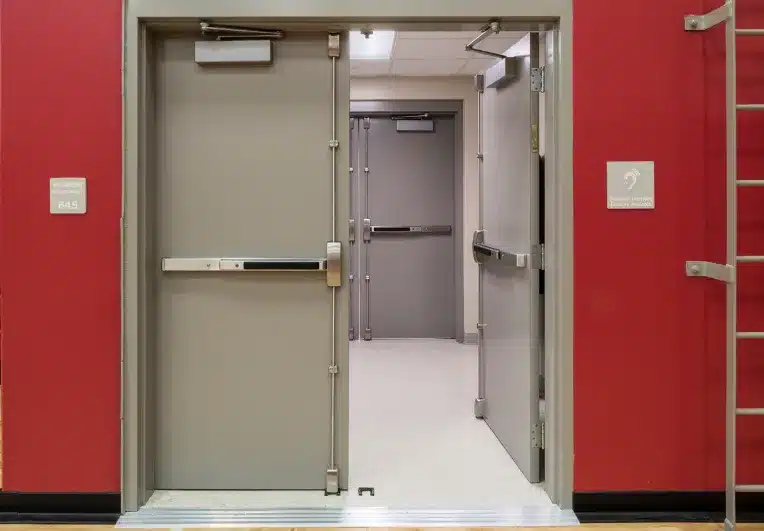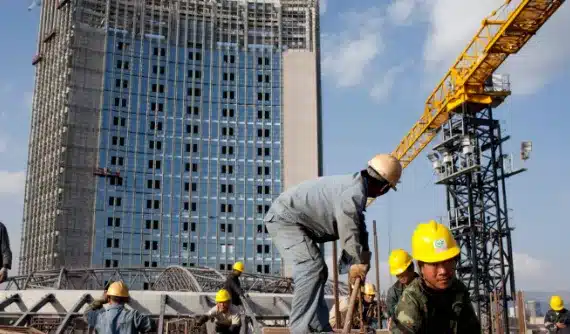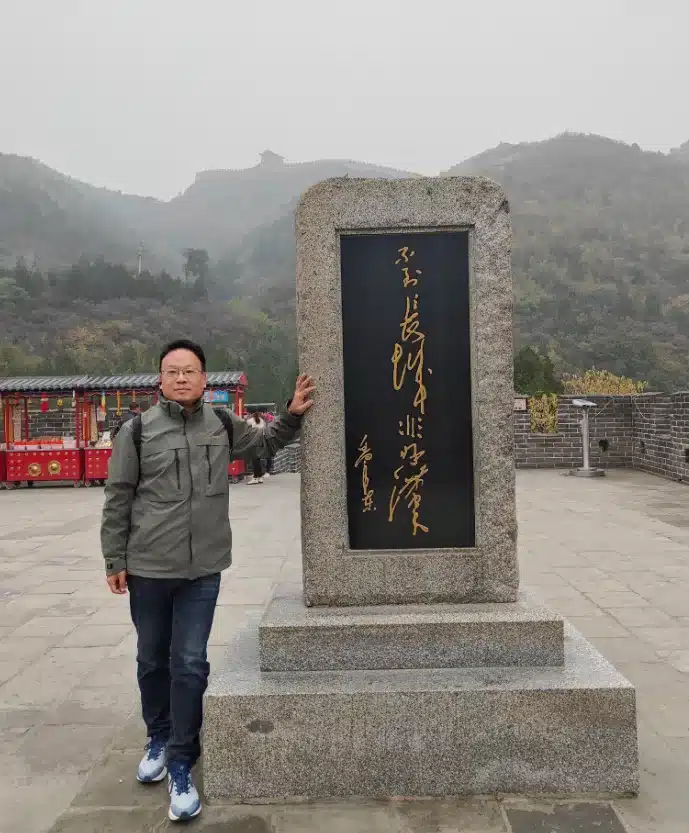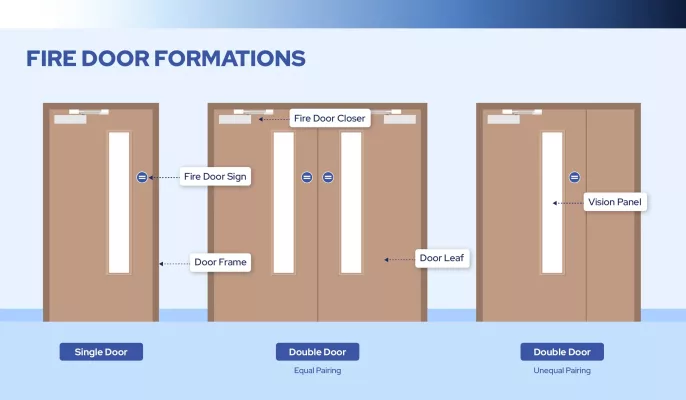The Role of the Belt and Road Initiative in Africa’s Construction Boom
The Belt and Road Initiative (BRI) has become a pivotal force in driving infrastructure development across Africa. As one of the world’s largest investment projects, BRI’s reach extends far beyond transportation networks, encompassing vital sectors such as construction, technology, and energy. In recent years, the initiative has opened doors for China to not only invest in but also collaborate with African nations to address their infrastructure needs.

Last month, our team had the opportunity to visit Africa for a field research trip. At the airport, the scene was striking—crowds of fellow Chinese entrepreneurs, all traveling to Africa with the same goal in mind: to engage in business ventures that will drive development. It was clear that there is a growing presence of Chinese investment and expertise in the continent, underpinned by the BRI. This growing connection is transforming Africa’s landscape, especially in rapidly expanding urban centers like Nairobi, Kenya, and Lagos, Nigeria.
Local Perspective:
The rapid urbanization in African cities is both an opportunity and a challenge. Cities like Nairobi are undergoing massive growth, creating a rising demand for modern infrastructure. However, the gap in construction quality and safety standards in many regions remains a significant hurdle. Africa’s cities are expanding, but many are still underdeveloped, with inadequate infrastructure to support their burgeoning populations. The BRI aligns perfectly with Africa’s aspirations for modern, sustainable infrastructure, offering a pathway to bridge this gap through international partnerships and investments.
Why Africa Needs China’s Support in Construction Projects
Infrastructure Gap:
Across Africa, the demand for high-quality buildings is immense. Many regions remain underserved, with infrastructure that lags behind the continent’s rapid urban growth. The need for reliable construction materials, secure housing, and modern commercial buildings is clear. China, with its rich experience in large-scale construction projects, is positioned to provide invaluable support in addressing these challenges. The vast scale of investment and expertise that Chinese companies bring to the table makes them a natural partner for Africa’s long-term development goals. As more cities grow, the urgency for infrastructure solutions—particularly in areas such as fire safety, affordable housing, and public buildings—continues to escalate.
| HS Code | Product Name | Partner Code | Partner Country | Value (RMB) |
|---|---|---|---|---|
| 73 | Steel Products | 236 | Nigeria | 7,141,127,722 |
| 73 | Steel Products | 244 | South Africa | 3,927,898,310 |
| 73 | Steel Products | 201 | Algeria | 3,528,306,235 |
| 73 | Steel Products | 215 | Egypt | 2,771,713,419 |
| 73 | Steel Products | 202 | Angola | 1,806,651,871 |
| 73 | Steel Products | 250 | Democratic Republic of the Congo | 1,750,456,902 |
| 73 | Steel Products | 240 | Senegal | 1,379,210,644 |
| 73 | Steel Products | 203 | Mozambique | 1,176,151,263 |
| 73 | Steel Products | 217 | Ethiopia | 663,719,163 |
| 73 | Steel Products | 248 | Togo | 656,344,479 |
| 73 | Steel Products | 230 | Mauritania | 636,039,387 |
| 73 | Steel Products | 253 | Tunisia | 605,394,330 |
| 73 | Steel Products | 212 | Gabon | 583,487,385 |
| 73 | Steel Products | 249 | Chad | 331,192,037 |
| 73 | Steel Products | 231 | Mauritius | 315,890,250 |
| 73 | Steel Products | 216 | Equatorial Guinea | 80,342,586 |
| 73 | Steel Products | 235 | Niger | 57,063,748 |
| 73 | Steel Products | 260 | South Sudan | 27,007,366 |
| 73 | Steel Products | 239 | São Tomé and Príncipe | 12,914,997 |
| 73 | Steel Products | 245 | Western Sahara | 29,003 |
Specifics on Fire Safety and Local Regulations:
In the face of urbanization, one area that cannot be overlooked is fire safety. Many African countries are still in the process of establishing and enforcing comprehensive fire safety regulations. The lack of robust fire safety standards, especially in newly constructed buildings, poses a serious risk to the growing urban populations. As African nations modernize, there is an increasing demand for fire-rated materials, including doors and windows, that meet international safety standards. This is where companies like Yuankai Door Industry play a crucial role. With our focus on producing high-quality, affordable fire-rated doors, we are committed to helping bridge this gap and providing solutions that meet both local regulations and global safety standards. Through our collaborations, we aim to support Africa’s vision for safer, more resilient cities—one building at a time.
Through our ongoing market visits, such as those conducted in Nairobi, it is evident that these challenges offer substantial opportunities for companies that can provide both expertise and products that cater to Africa’s unique needs. With the Belt and Road Initiative guiding this collaboration, there is no doubt that the future of Africa’s infrastructure will be shaped by strategic partnerships and investments—particularly those from China.
The Future of China-Africa Construction Partnerships

Long-term Collaboration Potential:
Looking ahead to the next decade, the construction partnership between China and Africa under the Belt and Road Initiative (BRI) holds immense promise. As African nations continue to modernize, the demand for sustainable, resilient infrastructure will only increase. The BRI serves as a powerful mechanism to facilitate large-scale investments, driving the development of roads, bridges, airports, and urban housing. As this partnership evolves, the focus is shifting towards sustainable building practices, including the use of eco-friendly materials, energy-efficient systems, and fire-resistant technologies.
China’s construction expertise, backed by manufacturers like Yuankai Door Industry, plays a pivotal role in ensuring that African construction projects not only meet current demands but also stand the test of time. With rapid urbanization and a rising need for safety in buildings, the use of fire-resistant materials—such as fire-rated doors—will become increasingly important. These materials are essential for ensuring the long-term safety and security of Africa’s growing cities, especially in the face of rising fire risks associated with rapid development.
Yuankai, as part of China’s growing footprint in Africa, is well-positioned to contribute to this transformation. By supplying certified fire-rated doors that comply with international standards, Yuankai can support the creation of safer, more resilient buildings in Africa’s urban centers. These partnerships will not only enhance construction quality but will also contribute to more sustainable cities by reducing risks and protecting lives.
Building Trust and Delivering Results:
A successful China-Africa construction partnership hinges on trust and quality. While the immediate benefits of construction projects are clear—improved infrastructure, new buildings, and better living standards—the long-term success of these projects depends on the reliability of the materials used and the expertise of the companies involved. As China continues to play a leading role in Africa’s infrastructure development, it is crucial to establish strong, trust-based relationships with local stakeholders.
Chinese manufacturers, with their technical expertise and ability to deliver high-quality products at competitive prices, are increasingly relied upon by African developers and governments. Over the years, Yuankai Door Industry has built a reputation for providing durable, certified fire doors that meet international standards. This reputation will be key in solidifying long-term partnerships across the continent. For Africa to develop its infrastructure sustainably, trust must be established not only in the quality of the products but also in the expertise of the manufacturers.
As the demand for safe, secure, and durable buildings rises across Africa, companies like Yuankai can play a crucial role in ensuring that construction projects adhere to the highest standards. By delivering results that meet both budget and safety requirements, Chinese manufacturers can continue to strengthen their relationships with African counterparts, setting the stage for ongoing collaboration.
How Yuankai Door Industry Can Support Africa’s Growing Construction Needs
Tailored Solutions for African Markets:
Africa’s construction needs are diverse, and one-size-fits-all solutions are not always effective. At Yuankai Door Industry, we recognize that each region has unique requirements based on local building codes, climate conditions, and safety standards. That’s why we focus on providing tailored fire safety solutions that meet the specific demands of the African market. From schools and hospitals to residential buildings and commercial complexes, our fire-rated doors are designed to cater to the varying needs of Africa’s growing infrastructure.
In areas with rapid urbanization, such as Nairobi and Lagos, the demand for secure and fire-resistant materials is becoming increasingly urgent. Our doors, with certifications like Class B and Class C fire resistance, are built to withstand extreme conditions, offering protection and peace of mind for building occupants. By working closely with local developers and construction teams, we can ensure that our products are a perfect fit for each project, meeting both the technical and budgetary requirements of the African market.
Empowering Local Economies:
China’s engagement in Africa, particularly through companies like Yuankai, goes beyond just profit. It’s about creating long-term value by empowering local economies and fostering sustainable development. The transfer of knowledge, technology, and expertise is a cornerstone of this partnership. By working with local contractors and builders, Yuankai contributes to the development of technical skills and the strengthening of local supply chains.
In addition to providing high-quality fire safety solutions, Yuankai is committed to creating jobs and economic opportunities within Africa. Our involvement in local construction projects not only boosts the region’s infrastructure but also supports local businesses by creating opportunities for collaboration and growth. Through these efforts, Yuankai is not just a supplier; we are a partner in Africa’s journey toward economic empowerment and sustainable development.
As the partnership between China and Africa continues to evolve, the focus on creating durable, safe, and sustainable infrastructure will remain a priority. With companies like Yuankai leading the way, Africa’s construction sector is poised to meet the demands of the future while contributing to the economic and social development of the continent.


